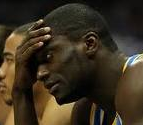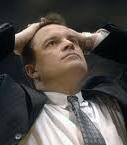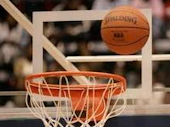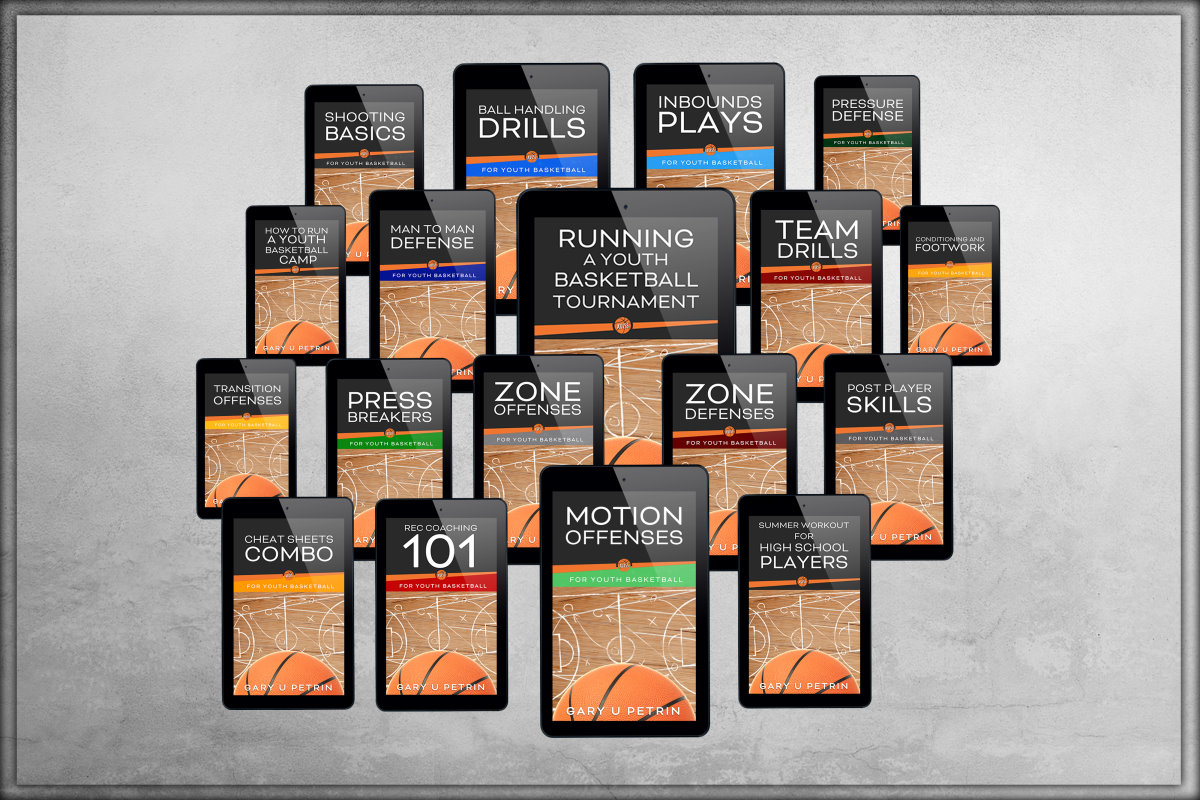The game is 10% skill, and 90% mental.
Yet over 90% of a basketball player’s time is spent on developing skills, and very little time is spent working on developing their mental toughness skills. Mental Toughness in Youth Basketball is rarely discussed (or properly understood). Read below to find out why this is one of the most important skills that players need to develop.
 |
 |
 |
Over the years I have seen many players work really hard at the game of basketball. Many of them spending hours and hours on developing their skills, speed, shooting, etc. But then you watch them in a “real” game situation and you can’t help but wonder why they aren’t dominating the game? They should be playing like a superstar! This happens all the time in basketball. A player can make every shot in practice, show skills that “wow” a coach and teammates. But then the game comes along. What happened to all those skills? The fact is that this type of player has not worked on the most important part of the game – the “Mental Game.” A player can have a high basketball skill level, but if they don’t have a high mental skill level to go with these basketball skills, then you will never see the player perform to their potential in a game. I have seen players with a “low” basketball skill level, but have a “high” mental skill level do very well in a game. This is because this type of player has “no fear” and will use what little skills they have to the fullest. This can make a mediocre player look like an all-star. And the highly skilled player look like an average player. All because of the “mental” aspects of the game! Coaches can scream at players, bench them, and not start them to try and solve this problem with a player. There is only one known fix for a player with weak mental skills. The need for this player to start working on their “mental” game. Mental Toughness in Youth Basketball is extremely important to a players game.
A player has to work just as hard on developing their “mental muscle” skills as they do with developing their “physical” skills. It’s part of the game, and players need both in order to be successful!
What is Mental Toughness?
Positive mental toughness in youth basketball is when a player totally believes in their skills and wants to do whatever it takes on the court to be successful. And help their team win. It’s that “no-fear” attitude that a player shows on the court. That aggressive behavior that says “get in my way, I dare you.” You heard the saying “No Retreat – No Surrender” haven’t you? That is what’s in the mind of a player that exudes mental toughness. Losing is not an option, win at all costs. And if they lose the game, this type of player understands what they could have done better to win the game. And then they want to work even harder to correct it.
This type of player also understands that they can do everything physically possible to help their team win. And they can’t always control the outcome (they can play hard and still lose). A coach needs to understand that “winning” games depends on how mentally tough their team is. And most of all, how ready each player is with their mental toughness side of the game.
How to Develop Mental Toughness…
This is not an easy task, and it’s very hard to develop this type of skill. As stated above, a player can be in top condition and have awesome basketball skills, but if they are not “mentally” ready for the game – it really doesn’t mean a whole lot (they are just another average player on the team).
Here are some important “factors” regarding mental toughness that needs to be considered…
1. There is not one thing that can help to develop mental toughness. But there is one thing that is needed before a player can get started – “self-awareness.” If a player doesn’t have any idea that lack of “mental toughness” can be a major setback to their game, they are lost. A player must accept that they need to work on the “mental” side of their game just as much as the “physical” side of their game. The first step is awareness and understanding…
2. The players on your team must be dedicated and have a strong desire to win. Winning in this case = work hard to be their very best, give it everything, never give up, etc. Work Ethic – If players are serious about helping the team to succeed they must have a positive attitude. They must be focused and optimistic about being on the team, and most of all pay attention to what is going on. Players must hustle every single minute of practice – every drill, every play, every lap. Focus means to pay attention to every detail. If the coach is explaining a play to the first group, make sure you listen to what they are saying. If a play is not executed correctly in the game, it’s because of lack of focus during practice (someone did not get the play, or did not listen). Working hard in practice should be a “given” and expectation to all players. This is part of working on mental toughness.
Set some Rules!
3. Set some rules – When your team is on the court (practicing or playing in a game) there should absolutely no “complaining” or any type of “negative” behavior such as negative comments or body language. Negative behavior can “breed” very quickly. Do not allow this to occur and make it clear to your players it will not be tolerated. Once you allow this type of behavior it would be extremely difficult to reverse it. Positive behavior and attitudes = a more focused group of players, a more focused team!
4. Visualization is very important with developing mental skills. If a player can see examples of actual experiences – this allows the mind to distinguish between what they can do, and what they are capable of. And if they can see it, it can be done. The one exercise that players can do is to close their eyes and “visualize” themselves playing well in a game. They should be specific and try to make it as realistic as possible. They should picture themselves playing great defense, stealing the ball, making a great assist, boxing out, grabbing offensive rebounds, making a 3-point shot, driving to the hole (the list is pretty much endless). This needs to be part of every practice, before every game (in the locker room), while the whole group is stretching or whenever the opportunity is available. Playing music (chosen by the team) in the background just before the game can be very helpful for player visualization. Just make it part of your practice plan, daily routine, team focus…
5. Developing a “Short Memory” is another aspect of the mental game to work on with your players. It is inevitable; mistakes are going to be made. Players must learn from each mistake, but quickly move on to the next play. If a player “carries” the burden of each mistake on their shoulders, it will be like carrying a ton of extra weight during the remainder of the game – there is no way they can play to their full capability. Learn from mistakes, forget them quickly, move on and play the game – you must have a short memory.
6. Distractions can be a “brick wall” when it comes to maintaining focus in a game (or even in practice). Players can exhibit good mental toughness skills by the way they handle these distractions. There are so many different types of distractions that can affect a player – Crowd noise, Coaches in your face, Comments from other players, Personal struggles at home, Boyfriend/Girlfriend problems, Referee calls, Grades/Schoolwork, Opponent comments during the game, and the list goes on.

Players need to learn to “overcome” any type of distraction. And find a positive way to deal with distractions as they occur. One way is to “Relax” the mind and remain calm. Close your eyes, take deep breaths, and try to think of a positive outcome to your distractions. You will find it much easier to think things out and concentrate if your mind is clear and relaxed. In a game, you will need to handle distractions by staying “focused” at all times. You must remain calm so your mind can quickly deal with any type of distraction that arises.
Examples:
Ex #1 – If a referee makes a bad call, ignore it, because there’s nothing that you can do about it. The ref isn’t going to change the call. I’ve never seen a ref change a call because a player thought it was a bad call, have you? So let it go, focus on the game. All that will happen if you focus on that bad call instead of the game is that you will most likely play poorly. You are only hurting yourself and your team.
Ex #2 – Personal problems. A player owes it to their team to either get in the game and totally focus, or don’t play at all. If the personal problem is deep, it will be hard to forget it. Totally forgetting about a personal problem would be very difficult. So think about it as “setting it aside” for a few hours while you play the game – you are taking a short two hour vacation from your problems. After the game you may have a different prospective or possibly even find a solution to your problems? If you don’t find a way to set aside this type of distraction, even for a short period of time, the only result is that you will not play to your full potential.
7. Emotions / Optimism – Optimistic behavior is a major aspect of mental toughness. Players should feel like they can beat anyone and any team (even if your team is up against the State Champions, the attitude should be that you can beat them). Players that exhibit good mental toughness will try to “pump” themselves up as well as their teammates whenever they need to. Optimistic players will never give up or show signs of giving up during the course of the game. Players can become very emotional during the course of the game.
Games can be very intense and get crazy at times. Once frustration sets in, players lose focus and concentration on the game. At that point, things can quickly start falling apart – plays don’t work, players yelling at each other, not hustling on defense, etc. Emotions cannot “rule” a player’s performance; emotions must be “controlled” by the player and kept in “check.”

Coaches must always remain poised and in control of the game. Players feed off a coaches emotions, and that can be a good thing sometimes, but it can also be a very bad thing sometimes. Coaches are supposed to be role models to the players. Coaches shouldn’t focus on the referee’s or bad calls, they should always stay focused on their players and the game. Positive or negative – the players will follow the coach’s lead.
Other factors that improve mental toughness…
* Preparing mentally for the game is a must. Your team should never fear their opponent, and never take any team for granted. Every time your team steps on the court it should be with great confidence and the determination that they can win. If a team steps on the court and they don’t feel they can win, they most likely won’t win the game. On the other hand if a team steps on the court against a team they previously beat by 25 points and are over confident (feeling that they don’t have to try hard because they already beat this team), they still may win, but it could turn out to be a “sloppy” win (or even worse they could lose the game).
* One of the biggest factors when it comes to the mental game is “Heart.” Players that play with a lot of heart will do whatever it takes to help the team succeed. A coach cannot tell a player to play with a lot of heart. Heart comes from within, and has to come from the player. Each player has a “switch” that they can either turn “on” or leave “off” when it comes to playing with heart. It comes down to the “mind” that will influence the “fury” (or passion) of the heart!
Stay Focussed!
* A coach should have their team use a “sign” or hand gesture / signal with each other to remind teammates to regain “focus” and get their mind back in the game. This could even be a “saying” of some sort. As long as there is something to remind the players that they need to be focused.
* Bench players are a big part of a teams overall “mental toughness” plan. Every player on the bench must be focused on the game, and they must be ready when they get in the game. Many times you will see players just sitting there with a “negative” look on their face – all upset because they aren’t in the game. Then the coach turns and calls their number, and most of the time these players are not ready. The result is that they make too many mistakes, and are quickly pulled out of the game. They really don’t understand that it was their fault, and that they need to stay focused even when they are just sitting on the bench. Not staying focused only hurts them when they finally get in because they are not mentally prepared. Coaches must “preach” to their bench players that they must remain focused to help the team succeed.

A note to players…
Have you ever played a game where everything went right? You made all your free throws, you couldn’t miss a shot, passes were sharp, etc. Do you remember how easy everything flowed, how it felt? They call this playing the game “out of mind.” This is that one game where you let the game come to you. You didn’t try too hard, you didn’t put pressure on yourself, you just played the game with both your “mental” and your “physical skills.” There are some players that can perform at this level every game. Or at least a good majority of their games. Then there are those players that put so much “pressure” on themselves to do great, that they usually do not do very well in the game. Trying “too hard” can be a bad thing sometimes. How a player handles mistakes, coaches yelling at them, ref calls, player comments, and pressure situations will define them as a basketball player.
A player can either learn to deal with it and move on. Or they can let it consume them to the point where they make more mistakes and lose confidence. One mistake does not make the whole game. The fact is that every player will make mistakes. No player ever plays “mistake free” basketball. The last time I checked the game lasts for 4 quarters. And mistakes made early in the game can be “corrected” throughout the remainder of the game. That great game you played, when you played “out of mind” won’t happen all the time. But it will happen more frequently if you let the game come to you (focus, relax, forget about mistakes quickly). You must also remember that the game of basketball is just that – a “game.” Games are supposed to be fun. If you are making yourself “miserable” during the game – then it’s really not fun anymore. Lighten up; use both your “mind” and your “skills” to be the best you can be on the court.
“The mind controls what the body does.” (Author unknown).

Sports Psychology? – What is that?
Yes, there is such a thing called “Sports Psychology.” Can it help a player overcome distractions, deal with stress, develop confidence on the court, help prepare for the game – yes it can. Does every player need it? Maybe to some extent, yes, but maybe not – it all depends on the player. There are some players that have so much confidence that they could give some away – and still have plenty for themselves. And then there are those players that just need a little more confidence to strengthen their game. The worst cases are those players that have very little confidence or mental toughness when they walk on the court. Sports Psychology can work for those players that need training on the mental toughness part of the game. Parents and players should understand that Sports Psychology will help, but it will take some time. Do not expect things to happen overnight. If a player has great physical skills, but lacks mental toughness, it may be wise to get into a Sports Psychology program as soon as possible.
Check out this Post – The Last Shot – If Only!
Conclusion
When it comes down to mental toughness in youth basketball there are many situations during a game where you can measure “mental toughness.” Pressure free throws, players getting on the floor for a loose ball, great defense / hustle, executing plays, positive body language, players pumping up their teammates, playing hard even when the team is losing by 20 in the fourth quarter or even if their team is up by 20 points, and wanting to take the last shot. If your team exhibits just a few (or none) of the examples above – your team could be in trouble. Coaches must commit to teaching and preparing their players with strengthening their “mental game” as well as developing their basketball skills. This will not only increase the team’s level of play, but also increase your team’s chances of being successful. If you watch basketball (High school, NBA, WNBA, College, etc) you will notice that some of the best teams (players) are not always the most highly skilled, but rather exhibit a good combination of basketball skills and mental toughness. This is what makes a “good” team a “great” team!
Check out our New Downloads Now!
Check out our database of video clips – Easy Spread Motion Offense Play

Mental Toughness
Check out Motivational Quotes Here

